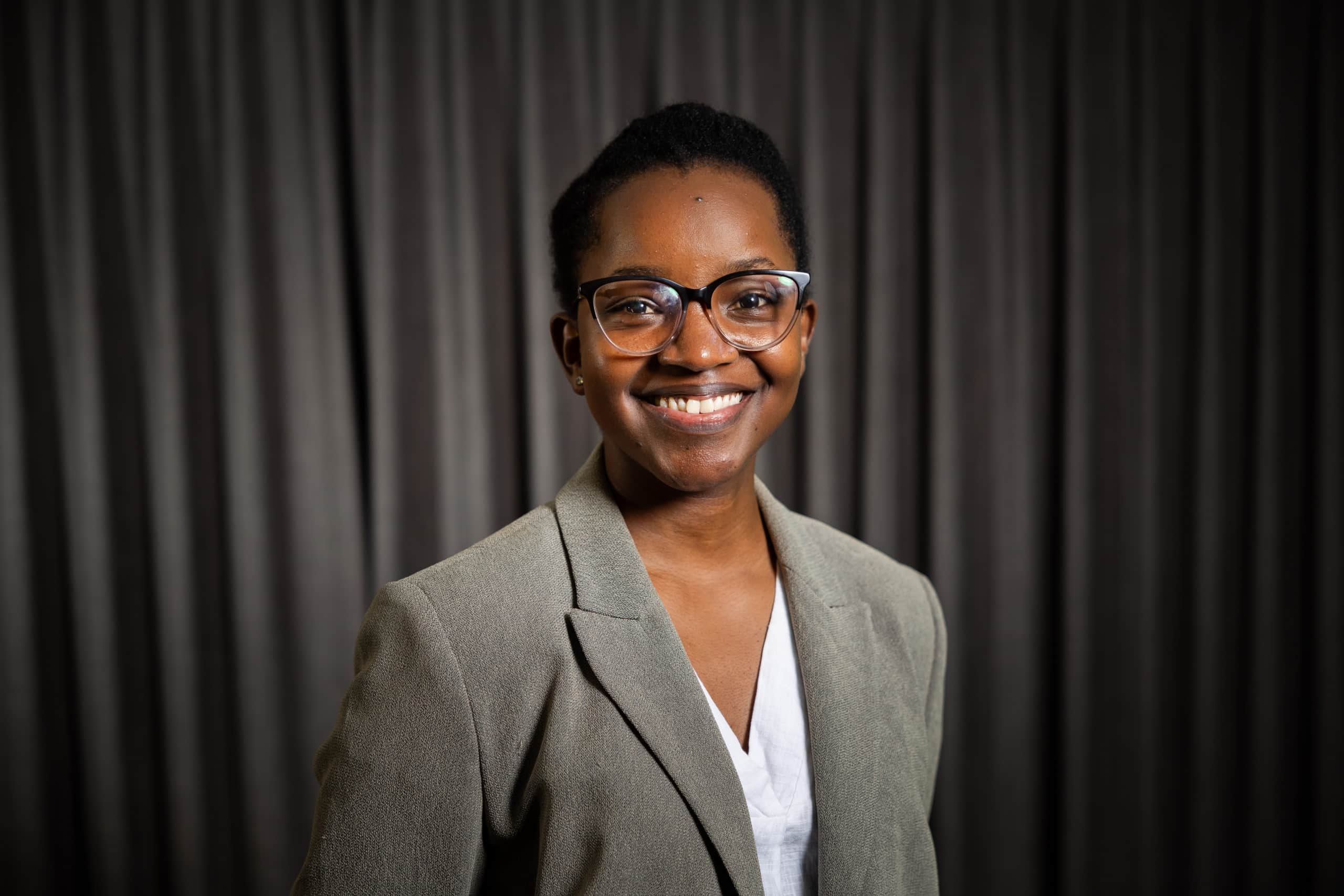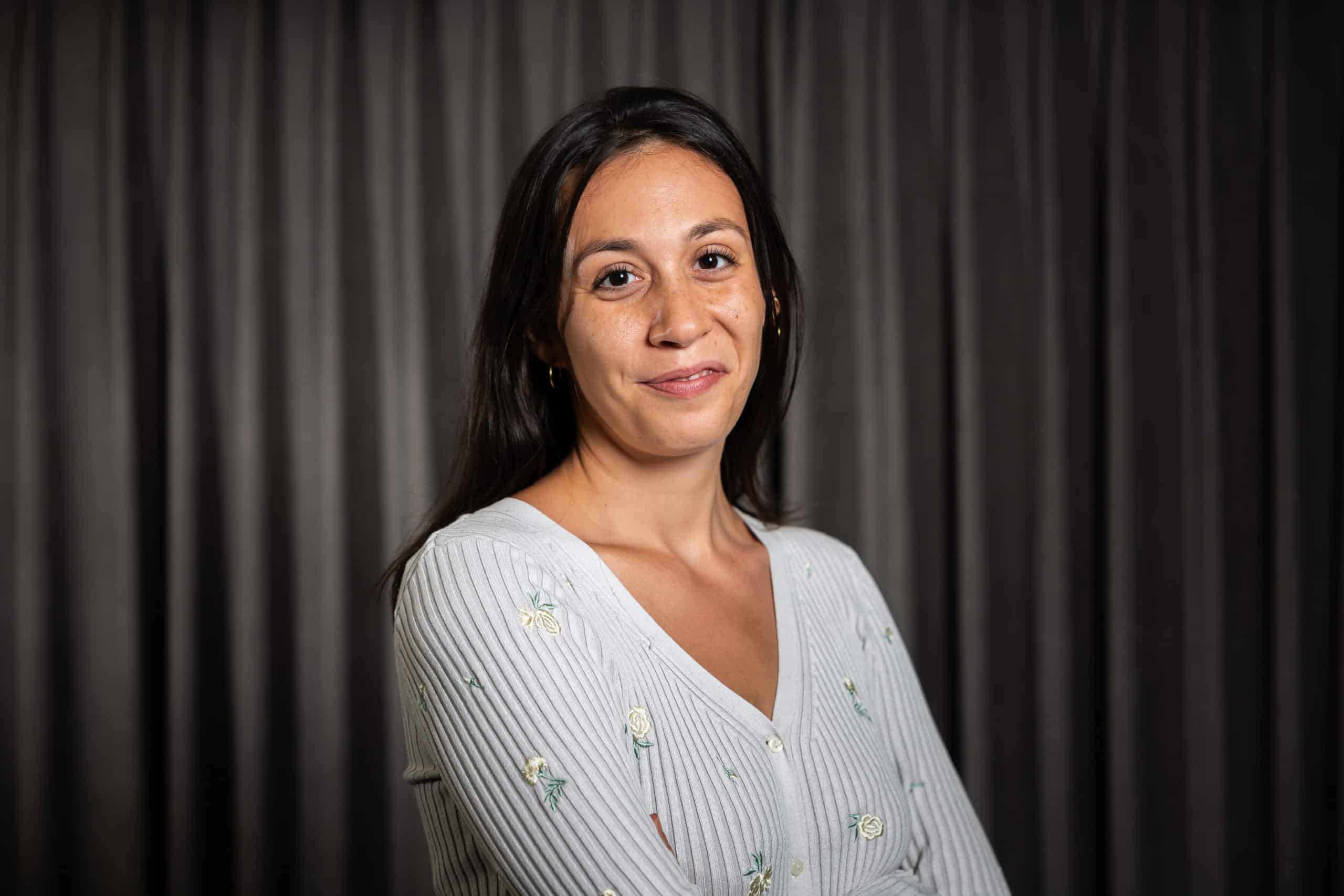While girls’ football teams were once rare, efforts to increase participation are gaining ground.
Story by Betty Njeru / The Standard
It’s a sunny Wednesday afternoon in June, and a group of about twenty young girls and boys, aged between 8 and 15, gather for a friendly football match in Les Charmilles, a quiet town tucked away from the busy streets of Geneva.
Spirits are high, sun’s shining, and their brightly colored red and yellow jerseys immediately catch the eye.
Standing nearby, with arms akimbo and voice booming in a way only Arsène Wenger or Mike Arteta could muster, is their coach, Johan Djourou. His sharp eyes dart from player to player, ready to engage, though a smile tugs at his lips, betraying his stern demeanor. With a sharp blow of the whistle, he signals the start of the game.
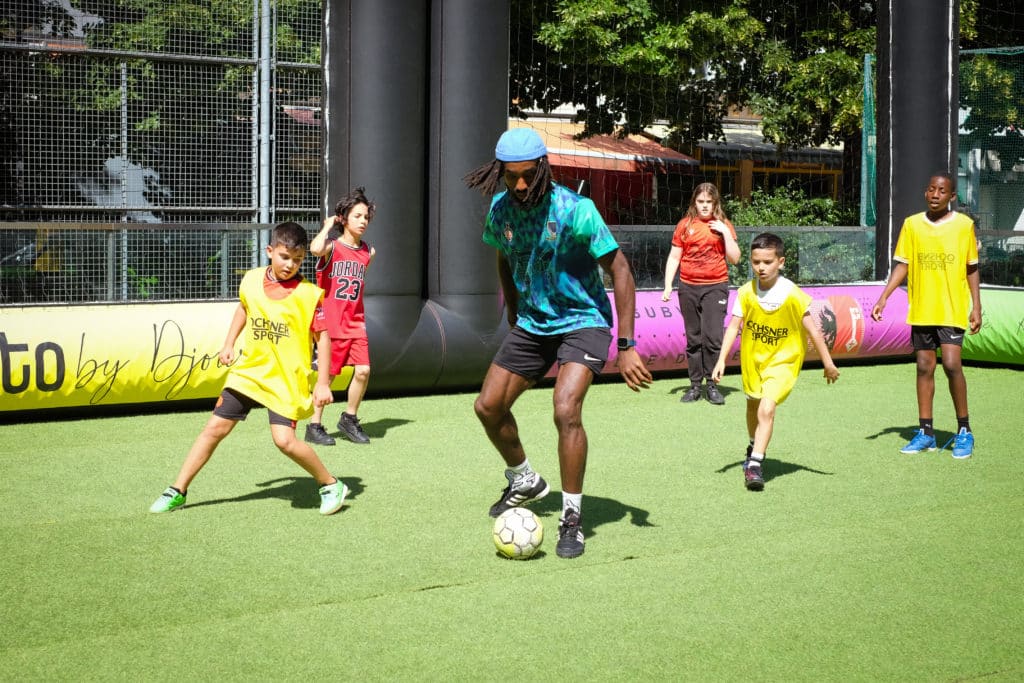
Former Arsenal football player Johana Djourou, who runs Mondialito, coaches young girls and boys during a friendly match in Les Charmilles, Switzerland. Photo Betty Njeru, The Standard.
The former Switzerland and Arsenal football player runs a community project known as ‘Mondialito,’ loosely translating to “the meeting of two ambitions.”
“Mondialito came to life because when I was younger, I always played in the streets with my friends. We didn’t care that we came from different backgrounds or cultures. We would play football or basketball for hours. But now, that culture is missing because children are distracted by so many things. They stay indoors more than they play outside,” Djourou explains.
Mondialito is a neighborhood football project where young girls and boys up to the age of 16 are trained.
“We have both girls and boys. Sometimes the girls come to play alone. We don’t care about gender; I just want them to feel included,” he adds.
A changing landscape
It wasn’t always like this. Football teams for women were virtually nonexistent in Switzerland, and young girls didn’t start playing the world’s most-loved game until recent years.
A study published in the University of Bern journal in 2023 found that, to date, many male-dominated sports still see lower participation rates among girls and women.
Sandy Maendly, a renowned former international football player, knows this struggle all too well. Though she hung up her boots two years ago, she remains one of the most celebrated women in the sport, with 89 cups to her name. Young girls look up to her, inspired by her journey.
Now as the Sports Director at Servette Football Club in Geneva, Maendly reflects on her own path.

Servette FC Sports Director, Sandy Maendly (in white shirt) overlooking a mural of Servette FC players. Photo Betty Njeru, The Standard.
“When I was younger, there were no women’s teams, so I was thrilled when, seven years ago, I saw that clubs were creating women’s sections. It was always my dream to play in a women’s-only club. The switch from player to director came so easily and quickly when I retired in 2022,” she says.
Barriers to women’s participation
Despite efforts by the Federal Government and Swiss sporting associations to increase participation among young girls and women, significant barriers remain.
A 2018 study on factors influencing women’s sports practices in Switzerland identified structural constraints such as limited family time, physical health issues, finances, and gender stereotypes as key reasons why many women shy away from sports.
“Menstruation, for example, was always a taboo—not only in football but in all sports,” Maendly notes.
Joëlle Schwarz, who co-heads the Health and Gender Unit at Unisanté, a Center for Public Health and General Medicine in Lausanne, echoes these sentiments. Years of research in her field have demonstrated disparities in men’s and women’s access to healthcare.
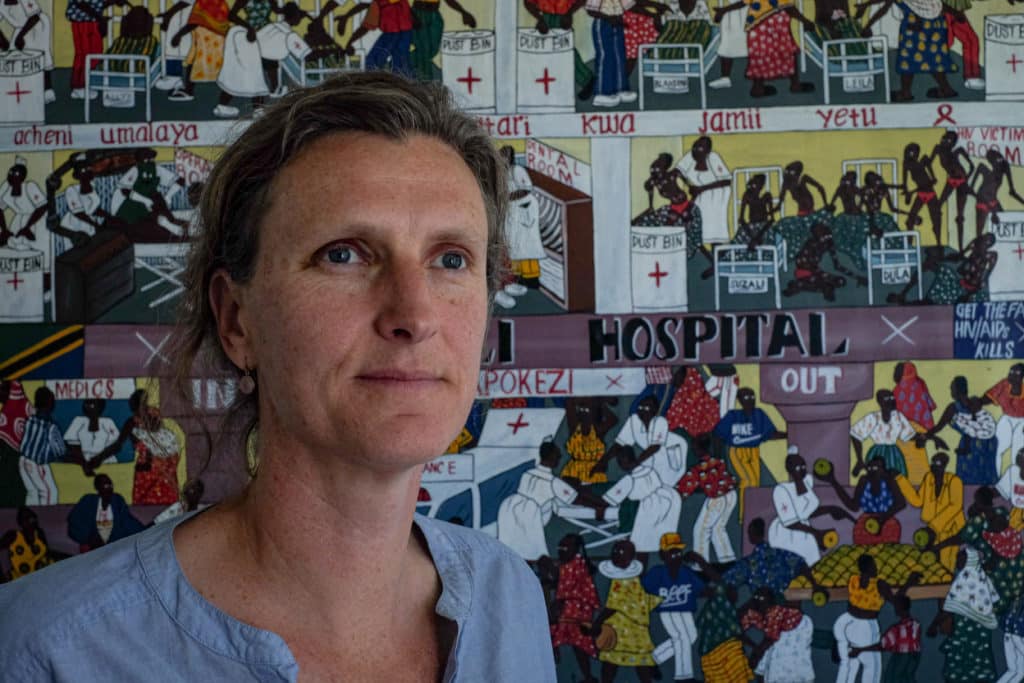
Joëlle Schwartz, co-head of the Health and Gender Unit at Unisanté, Lausanne. Photo Betty Njeru, The Standard.
“Sexual and reproductive health was not discussed in traditional family settings. All the reproductive responsibility falls on women. In Switzerland, it’s considered a girl’s problem, discussed only with girls,” she explains.
Physician Dr. Boris Gojanović, who specialises in sports medicine, points out that a lack of information and awareness can hinder girls’ and women’s involvement in sports.
“When young girls go through menstruation, they may notice a drop in energy, leading to a feeling of fragility. They often visit gynecologists who don’t understand these low energy levels, which can be overwhelming. What we need are real specialists,” he says.
Discrimination
On a mid-sized football field just outside the city, in Vernier, a group of young girls is preparing for evening practice.
Clad in their team colors, one after the other, they run onto the pitch, a pristine green canvas marked by the precise lines of the field. They start with a warm up session under the watchful eyes of their coaches, dreams and hopes as big as Cristiano Ronaldo’s career.
Lea Nipote, 16, Maxine Gremion, 12, and Lya Moreno, 12, have been playing school football at Lignon FC for as long as they can remember. They love the game, and they don’t see much difference between boys’ and girls’ football.

12-year-old Lya Moreno warms up for a game at the school’s football pitch in Vernier, Switzerland. Photo Betty Njeru, The Standard.
“There’s not much difference when we’re playing, maybe just in intensity, but physically, it’s the same,” says Lya.
Despite societal discrimination, Lea remains undeterred. “Sometimes we hear comments like ‘girls shouldn’t play football.’ It makes us angry, but we keep going,” she says.
A 2018 study revealed that 41 percent of Swiss women reduced their participation in sports due to family pressure and pregnancy, while 30 percent had witnessed sexist comments, and 26 percent had experienced sexist acts.
Geneva’s Minister of Sports and former mayor, Marie Barbey-Chappuis acknowledges that discrimination against women in sports persists in public spaces.
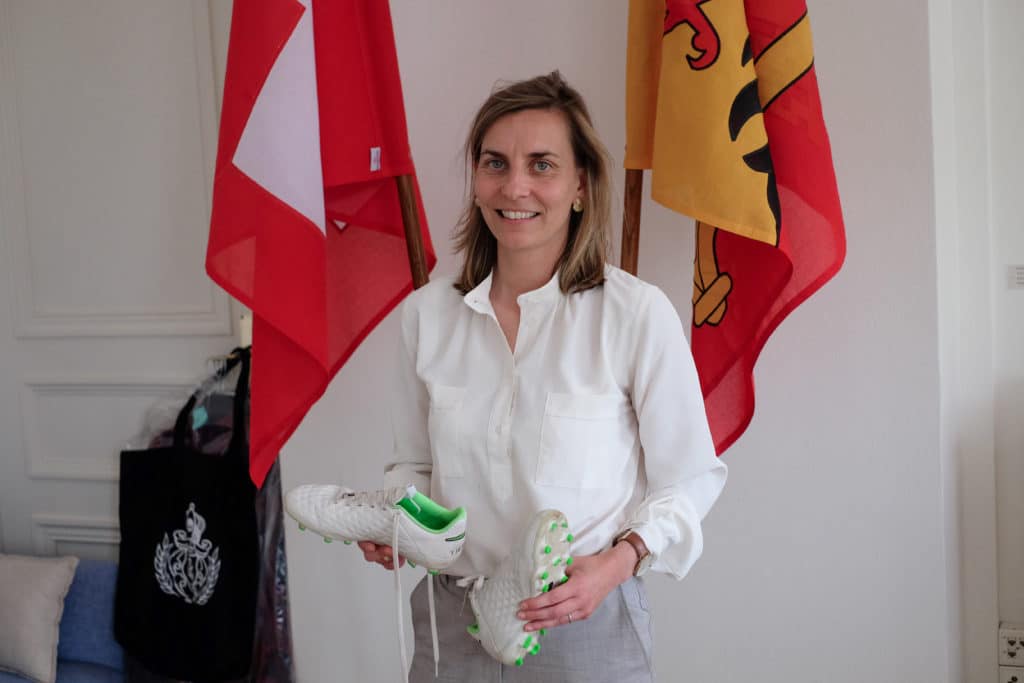
Geneva Sports Minister and former Mayor, Marie Barbey-Chappuis at her office in Geneva. Photo Betty Njeru, The Standard.
“When exercising or jogging in the streets, Swiss women often feel unsafe due to harassment. These systemic issues stem from a time when women’s sports weren’t taken seriously. They were overshadowed by men,” she says.
“For years, sports were largely male-dominated. There is still a prevailing male attitude, but that is changing,” Dr. Gojanović adds.
A push for change
But six years on, both Dr. Gojanović and Maendly see signs of improvement.
“More clubs are now accommodating pregnant players. Previously, women had to choose between a career and motherhood. But now, many clubs are open to the idea that players can be pregnant and still pursue their careers. It’s a positive change,” Maendly observes.
The road ahead
As Switzerland sets sights on the Women’s Euro in July 2025, the government is under pressure to improve conditions for women’s sports, including infrastructure, ahead of the second-largest event in the sporting arena.
“The government is not doing enough. Girls’ and women’s clubs lack the infrastructure to support their goals. There aren’t enough football pitches designated for women, so they often have to use the men’s facilities. Servette FC, for example, still doesn’t have adequate training conditions,” says Geneva’s sports minister.
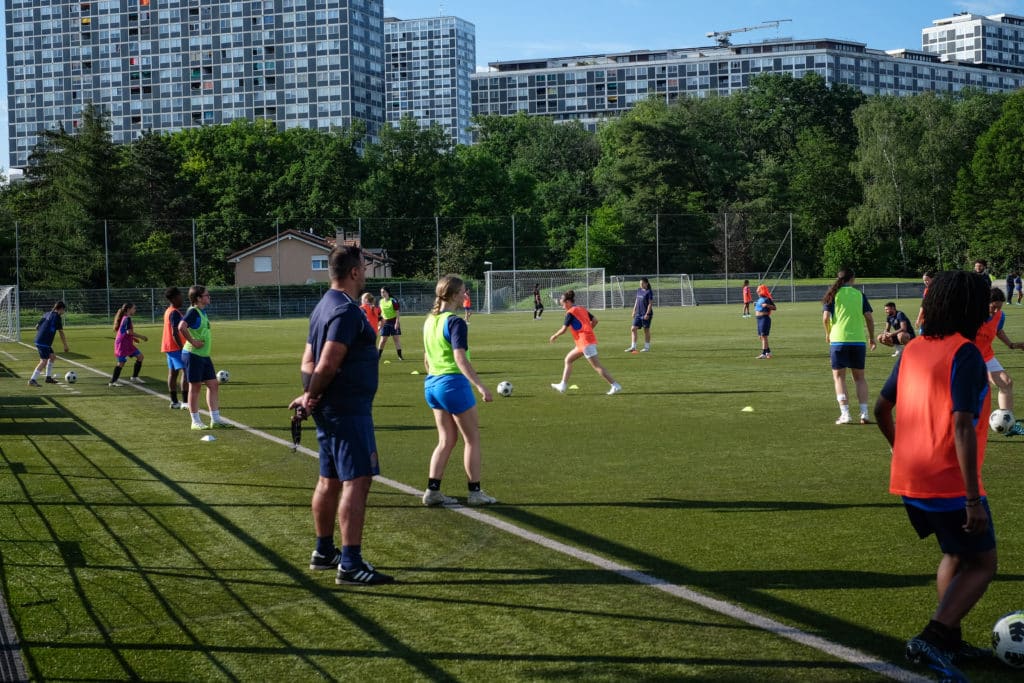
Teenage girls (who form part of Lignon FC) engage in training during a school football match on June 5, 2024. Photo Betty Njeru, The Standard.
Calls for increased investment in women’s sports continue to grow, urging the Swiss government to ensure permanent benefits for female players, similar to their male counterparts. Only 4 million Swiss francs was set aside for next year’s Euro, which experts aver is not enough.
Meanwhile, Geneva Canton Member of Parliament Laurence Fehlmann Rielle is leading a campaign to highlight women’s health at the Federal Council. She notes that women don’t receive the same treatment as men when presenting their health issues to doctors, which could alter the course of their lives. “All is not well, but we are on the right path,” she says.
Like her, health and gender specialist Schwarz also wants the government to fund gender medicine research.
As Djourou blows the final whistle to signal the end of the friendly match at the mobile pitch in Les Charmilles, the young girls, all under 16, can only hope.
Exhausted from the hour-long game, their spirits linger, as does their coach’s determination to inspire the next generation of women football players.
“I’d like to see more belief in and love for the women’s game and improvement in infrastructure. We have a lot of work to do,” he says.

